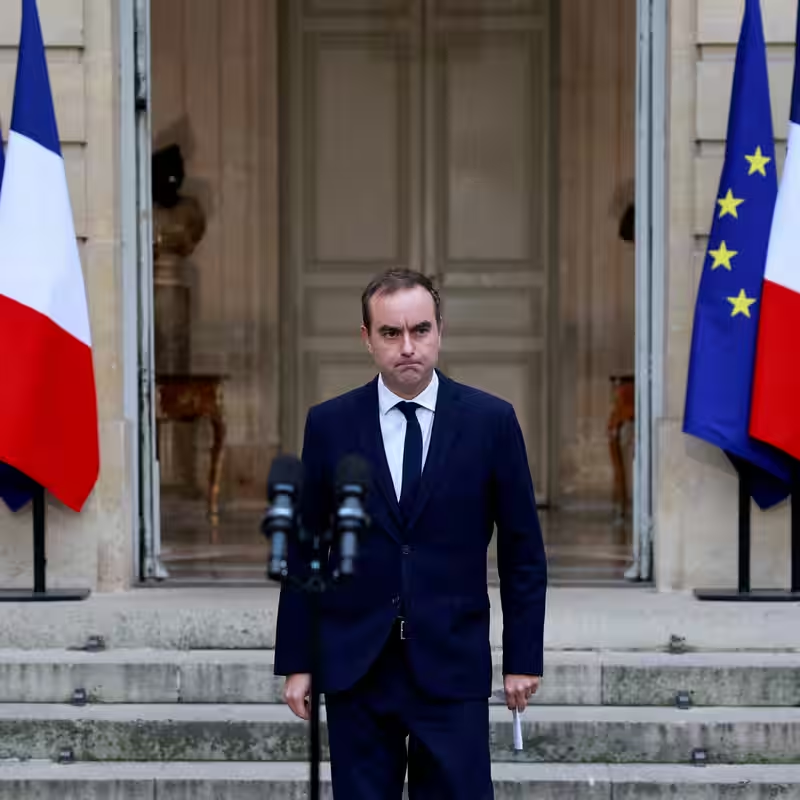Table of Contents
- France Faces Political Cliff Edge
- Lecornu’s Urgent Appeal for Unity
- Why Snap Elections Would Be Risky
- Key Parties in the Negotiations
- Timeline of France’s Political Crisis
- What Happens Next?
- Sources
France Faces Political Cliff Edge
Paris is holding its breath as France teeters on the brink of political chaos. With the clock ticking down on government formation talks, outgoing Prime Minister Sébastien Lecornu is making a final, high-stakes push to broker a coalition deal that could prevent the country from plunging into snap legislative elections.
After months of deadlock among deeply divided parties—from the far right to the radical left—Lecornu insists a compromise is still possible. “I believe in our capacity to overcome divisions,” he said in a rare public statement on Wednesday. “The French people deserve stability, not another electoral rollercoaster.”
Lecornu’s Urgent Appeal for Unity
Lecornu, who has served as a caretaker prime minister since the collapse of the previous government, has emerged as an unlikely mediator. Known for his pragmatic conservatism and cross-aisle relationships, he’s been shuttling between party leaders in closed-door meetings at the Hôtel Matignon.
His message is clear: if parties can agree on a minimal governing platform—focusing on economic reform, public safety, and EU alignment—they can avoid triggering Article 12 of the French Constitution, which allows the president to dissolve the National Assembly and call new elections.
Why Snap Elections Would Be Risky
Political analysts warn that fresh elections could deepen France’s instability rather than resolve it. Polls show no single bloc is positioned to win a majority, raising the specter of another hung parliament—or worse, a surge by Marine Le Pen’s far-right National Rally.
“Another election could hand the keys to the far right by default,” said Dr. Élodie Marchand, a political scientist at Sciences Po. “Voter fatigue is real, and turnout could collapse—opening the door to polarization.”
Moreover, snap elections would delay urgent decisions on France’s 2026 budget, pension reforms, and energy transition plans—critical issues amid rising inflation and climate pressures.
Key Parties in the Negotiations
| Party | Leader | Stance on Coalition |
|---|---|---|
| Renaissance (Centrist) | Stéphane Séjourné | Open to broad coalition |
| National Rally (Far Right) | Marine Le Pen | Rejects alliances; demands elections |
| New Popular Front (Left Alliance) | Multiple leaders | Willing to negotiate—but opposes centrist economic policies |
| Les Républicains (Center-Right) | Éric Ciotti | Factional split; some support Lecornu |
Timeline of France’s Political Crisis
- June 2024: Legislative elections produce a hung parliament; no party wins majority.
- September 2024: Previous prime minister resigns after failed coalition talks.
- January 2025: President Macron appoints Lecornu as caretaker PM.
- October 8, 2025: Lecornu issues final appeal to avoid snap elections.
What Happens Next?
President Emmanuel Macron is expected to make a decision by Friday. If Lecornu secures enough support to present a viable cabinet, France may avoid elections and move toward a technocratic or unity government.
If not, the country could head to the polls as early as November—a scenario many fear would further fracture an already polarized electorate.
For now, all eyes are on Paris. As one senior diplomat put it: “This isn’t just about politics. It’s about whether France can still govern itself.”




